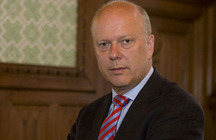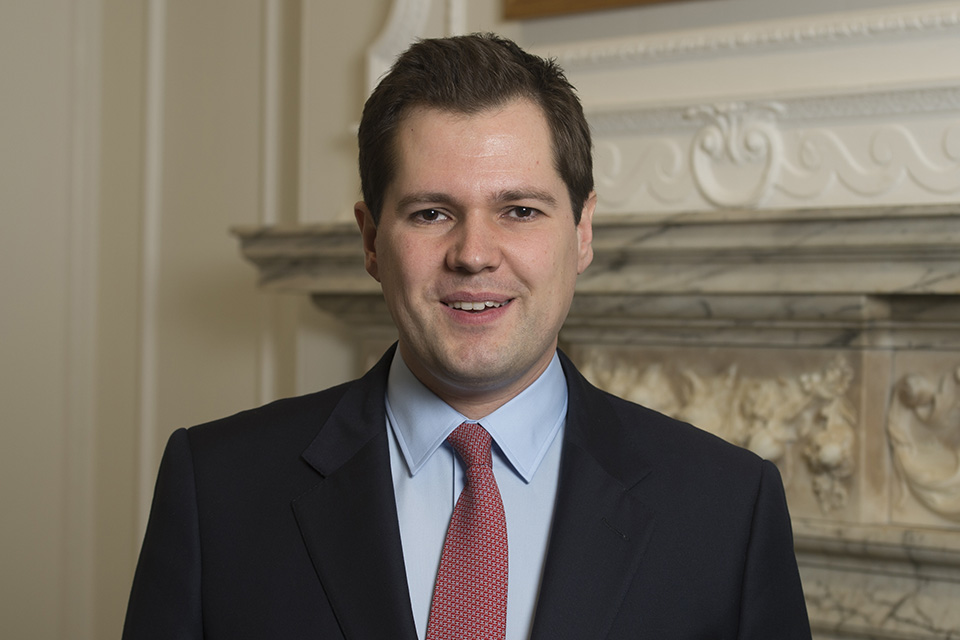Chris Grayling – 2020 Speech on the Restoration and Renewal of the Houses of Parliament
The text of the speech made by Chris Grayling, the Conservative MP for Epsom and Ewell, in the House of Commons on 16 July 2020.
It is a particular pleasure to follow the right hon. Member for Alyn and Deeside (Mark Tami). It is a bit like a reunion of the Joint Committee today—many of us served on it—
Mark Tami
Bring the band back together!
Chris Grayling
Absolutely. Many of us served on the Joint Committee back in 2015-16, when we looked at all the issues exhaustively. We considered all the ideas that were submitted to us, some partially credible that did not understand the nuances of this place and some frankly less credible, but I want to make the point to everybody, particularly new Members, that this is not something we have an option about. We have got to do this. When I became Leader of the House in 2015, two things happened in quick succession that brought that home to me, one here and one elsewhere.
First, we nearly had to close the Chamber indefinitely within a few days of my becoming Leader of the House because asbestos was discovered up in the ventilation shafts. If it had become dislodged, or if it were to be dislodged in future, we would have no choice but to immediately close the Chamber indefinitely. What would happen then? The right hon. Member for Alyn and Deeside is right: the building has huge amounts of asbestos. It is a genuine health hazard, which can bite us at any time. That alone is a reason to do the work.
The second thing that happened had nothing to do with Notre-Dame. A few days after I became Leader of the House, Kingsway caught fire. Kingsway is a road and the wiring under it caught fire and burned for days. I advise all those who have not been down into the basement here to do so. Apart from the sewerage system that was mentioned and the asbestos, the basement contains a jumble of wiring, some very old, that could do just the same—catch fire and burn for days.
The House authorities have always said that they can get us all out and save our lives, but they cannot save the building. If we have a serious fire, this building will burn down, in the way that Clandon Park burned down and in the way that Notre-Dame burned down. That would not only be a gross dereliction of our duty as stewards of this building but a national tragedy. Every year, hundreds of thousands of people come to visit what is a world heritage site. It brings people from around the world; it is one of the world’s iconic landmarks. We cannot possibly put ourselves in a position where year after year the risks increase because the wiring gets older and all the systems get older, so we are making it more likely that there will be a devastating fire and this building will be destroyed. We simply cannot do that.
As my successor as Leader of the House rightly said, we all come to this project slightly sceptical. It is a lot of money to spend and it is not something that is going to be universally popular with constituents around the country. However, the more one delves into the subject, the clearer it becomes that we have absolutely no choice but to do this. We looked at all the alternatives. We considered whether we could put a temporary Parliament somewhere else. But even if we just went up to Horse Guards or somewhere like that, could we really, at seven o’clock on an Opposition day, have queues of MPs walking across Whitehall to come and vote? What a security risk that would be—what a target for terrorists. We have to keep Members of Parliament and, in particular, people who work for us, who are often as at risk as we are if something terrible happens, within the secure estate.
That is why and how we came to the conclusion that Richmond House was the best option. It is within the secure estate. It is a building that has flexibilities. The one bit I have a problem with is that I do not buy the argument that it is not possible to put a temporary Chamber into Richmond House without the scale of work that is being considered at the moment. We might need a compromise so that we do not need that period of time to replicate this Chamber exactly. Yes, of course we need to have a debating chamber, and yes, of course it should be consistent with the way that this Chamber works, but it does not have to be like for like—inch for inch, foot for foot identical to here. The Division Lobbies do not have to have exactly the same relationship to the Chamber. We have learned in the past few weeks that we can do things differently, and I buy that argument. We cannot just spend money willy-nilly because it keeps the environment in which we are going to be working close to what we have here now. If it changes a bit, it does not matter.
We cannot keep delaying this decision. I am frustrated that it is now 2020 and I co-chaired the Committee back in 2015—five years ago. This building is five years older. The systems are five years older. We have looked at all these options before. We looked at whether we could move the Commons to the Lords end. Actually, I am not convinced that the lords would vote for that if they had to leave and we got to stay. But then there are fundamental issues about the services. There is one sewer that services the whole building. So fine, we move to the Lords end, the work is happening down here, and then something goes wrong—the electricity fails or the sewer fails. If the electricity fails, it is going to take the devil’s own job of a time to try to work out what is wrong and how to fix it, and we stop working in the interim. If the sewer breaks, that makes the whole building unusable. It is really very difficult operationally, in a building that was designed as one with the services flowing from one end to the other, to simply say, “We’ll put something down the middle; that end’s fine and this end isn’t.”
We looked at using Westminster Hall, but there are historical reasons why that is difficult. Perhaps more than any other part of this building, we have a duty to protect Westminster Hall. It is the heart of the building which, back in 1834, the fire brigade chose to protect. In the Second World War, when the bomb was dropped, the fire brigade chose to protect Westminster Hall. We cannot abuse Westminster Hall because it gives us a chance to stay a bit closer to this building while the works are happening. We looked at that exhaustively and came to the conclusion that it was not possible.
I think that anyone who looks through these issues carefully and in detail will reach the same conclusion that we all did five years ago. I commend the work of the Sponsor Body and the work that is to come from the Delivery Body. We chose to recommend that those were set up because we felt that that was the right way forward —to learn the lessons of the London Olympics, to follow a single approach to doing it, and to learn from how similar bodies made that project work effectively. My request to my right hon. Friend the Member for East Hampshire (Damian Hinds) and all those who are on the Sponsor Body is: please let us get on with this. With every month and every year that goes by, the risk gets greater. I do not want us, as a generation of politicians, to wake up one morning to find that we were the people who did not act in time, the building is no more, and the taxpayer now faces a much, much bigger bill to restore a landmark, as the French do with Notre-Dame. Please, I say to the Leader of the House and to all colleagues, let us get on with this as quickly as we can.


